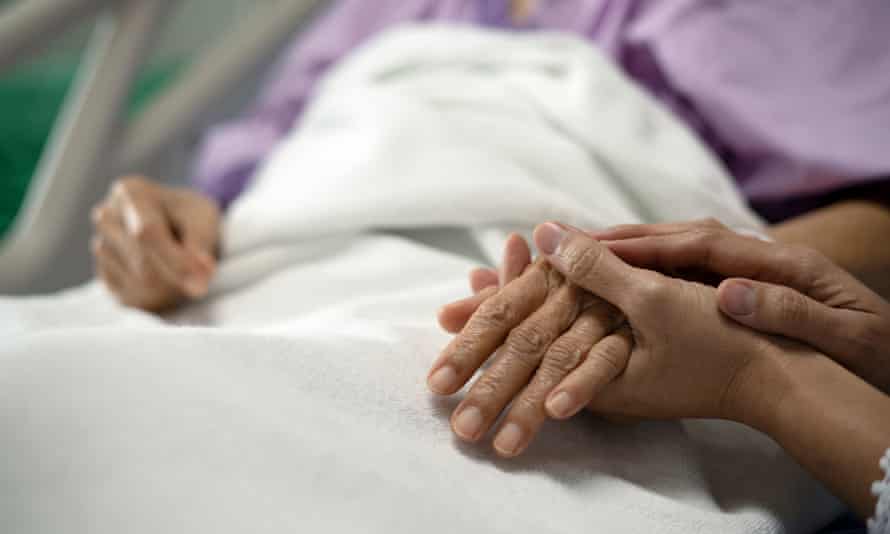Mario Cibelli was preparing a 75-year-old patient for a big cardiac operation when the patient's daughter asked for a quick word.
The woman described how her father, a former physics professor, had shown signs of cognitive decline after the initial operation. He used to be a good chess player, but now can't play the game and can't even do basic crosswords.
It was the first time that Cibelli had encountered cognitive problems associated with surgery that persist well after the effects of anesthesia have worn off. I realized that this wasn't an isolated case.
It has been known for a long time that operations can have hidden consequences. The British Medical Journal published a paper about delirium after surgery in the 19th century. In the 1980s, scientists began to look at cases of older patients who had shown a decline in memory and concentration after cardiac surgery, but it has only recently become apparent that this is a risk factor for all over-65s who undergo surgery.
In the last 20 years, studies have shown that people with pre-existing health conditions are particularly vulnerable to the effects of POCD symptoms. A survey of patients who had surgery to repair hip fractures found that they had a poorer ability to function socially and carry out normal activities with a tangible impact on their daily life.
At the moment, estimates suggest that the incidence of POCD in older patients can be as high as 50% at discharge, 20% at six weeks and 10% at six months after surgery. Cibelli says that there are a lot of patients who are left with lasting impairment because of the disproportionate number of operations carried out in the over-65s.

Alzheimer's researchers are interested to see if POCD can accelerate decline towards dementia in some cases. People who already have underlying impairments in memory and attention skills are at higher risk of developing POCD and need to be considered as a risk factor before major surgeries.
Many of us have had the experience of granny breaking her hip, going to the hospital and then not being able to live on her own.
What causes POCD is a mystery. Some point the finger at anaesthesia, but certain animal studies have shown that anaesthesia can cause a decline in the cholinergic system in the brain, which is involved in learning and memory.
For a long time, we assumed anaesthesia was very transient, so when it wears off, it’s gone. That’s probably not true
Many scientists theorize that the symptoms arise from the body's reaction to surgery. Big operations can cause inflammation in response to tissue damage that can cross the blood-brain barrier. The brain is vulnerable to the effects of inflammation because it has the largest density of inflammatory receptors in the body. The hippocampus, a complex and vulnerable structure that plays a key role in memory, has a reduced volume in patients with PoCD.
The evidence could lead to changes in medical practice. The idea of using a regional rather than a general anaesthetic is being explored in ways of identifying at-risk patients before operations.
Older, frailer patients are the most at risk. It can be said in a different way for the very young.
David Warner was an anaesthesiologist at the Mayo Clinic in Minnesota and he was trying to understand the causes of a wide range of behavioural issues in children. He wondered if surgery and anaesthesia could affect the brains of young children.
He says that he takes care of kids during surgery and they wake up and go home at night. That is probably not true.
Warner became concerned about anaesthesia because of studies showing that anaesthesia exposure in infancy can lead to altered behaviours such as heightened emotional reactivity to threats and impaired learning and memory formation. Child development is more complex in humans than in our closest relatives.
Warner decided to put his theories to the test. A study was done on 1,000 children in Minnesota and compared three groups: children who had not been exposed to anaesthesia before the age of three, children who had a single exposure, and children who had multiple exposures.
He says that kids who had multiple exposures to anaesthesia had problems with their fine motor skills.
There is an association between multiple exposures to anaesthetics before the age of three and cognitive, memory, listening comprehension, and language deficits. Multiple exposures to anesthetized children later being given a diagnosis of attention deficit hyperactivity disorder is a correlation found in further studies.
It has been difficult for scientists to prove a link between anaesthesia and brain damage. There could be alternative explanations, according to a study in the Lancet. Children who need multiple operations at a young age are more likely to have problems with their brain development because of the injuries or illnesses they are suffering from.
Warner will be doing brain scans on the same children later this year to see if structural changes in the brain related to anaesthesia can be linked to behavioural issues.
There is some evidence that there is something different in the brain of kids who had multiple anaesthetic exposures.
The Brain Health Initiative was launched by the American Society of Anaesthesiologists in 2015.
Warner believes that the growing awareness of these risks means that doctors will be more cautious when using anaesthesia on young children.

There needs to be a greater focus on the long-term care of children who have had multiple anaesthetics in the early stages of life. Warner suggests that vulnerable children should be provided with specific cognitive enrichment activities to protect them from cognitive impairments.
At the other end of the age spectrum, more attention is being given to ways of preparing older patients for surgeries to make them more cognitive resilient, or treating Post-Traumatic Stress Disorder in the aftermath.
In the early 1990s, the surgeon from the Danes created a programme to study ways of maximizing recovery after surgery. A programme consisting of simple muscle exercises, nutrition and education can be used before big operations to help protect the body from injury.
Monument has reformulated a generic anti- inflammatory drug so that it can be used to access the brain and possibly reduce brain inflammation that may occur after surgery. If the trial is a success, it will look to target patients with the disease in the future.
Scientists are looking for ways to identify the patients most at-risk of developing POCD so that they can be targeted with some of the interventions. Studies in cardiac patients have shown that people with low levels of antibodies against endotoxins are more likely to suffer from POCD. Monument Therapeutics claims to have a biomarker that can predict POCD with 90% accuracy.
We want to be able to measure people's cognitive function before they go in for surgery to see how vulnerable they are.
Time will tell if these approaches can help reduce the incidence of cognitive problems in the young and old. Even after surgery is over, the risks are not over.
Warner says that when the anaesthesia wears off, everything is fine.